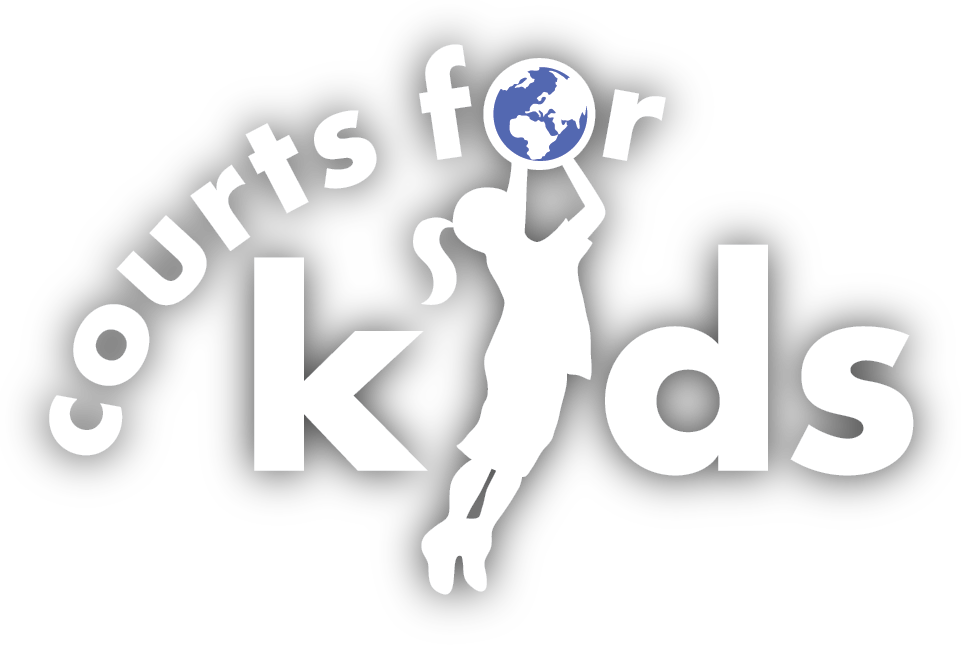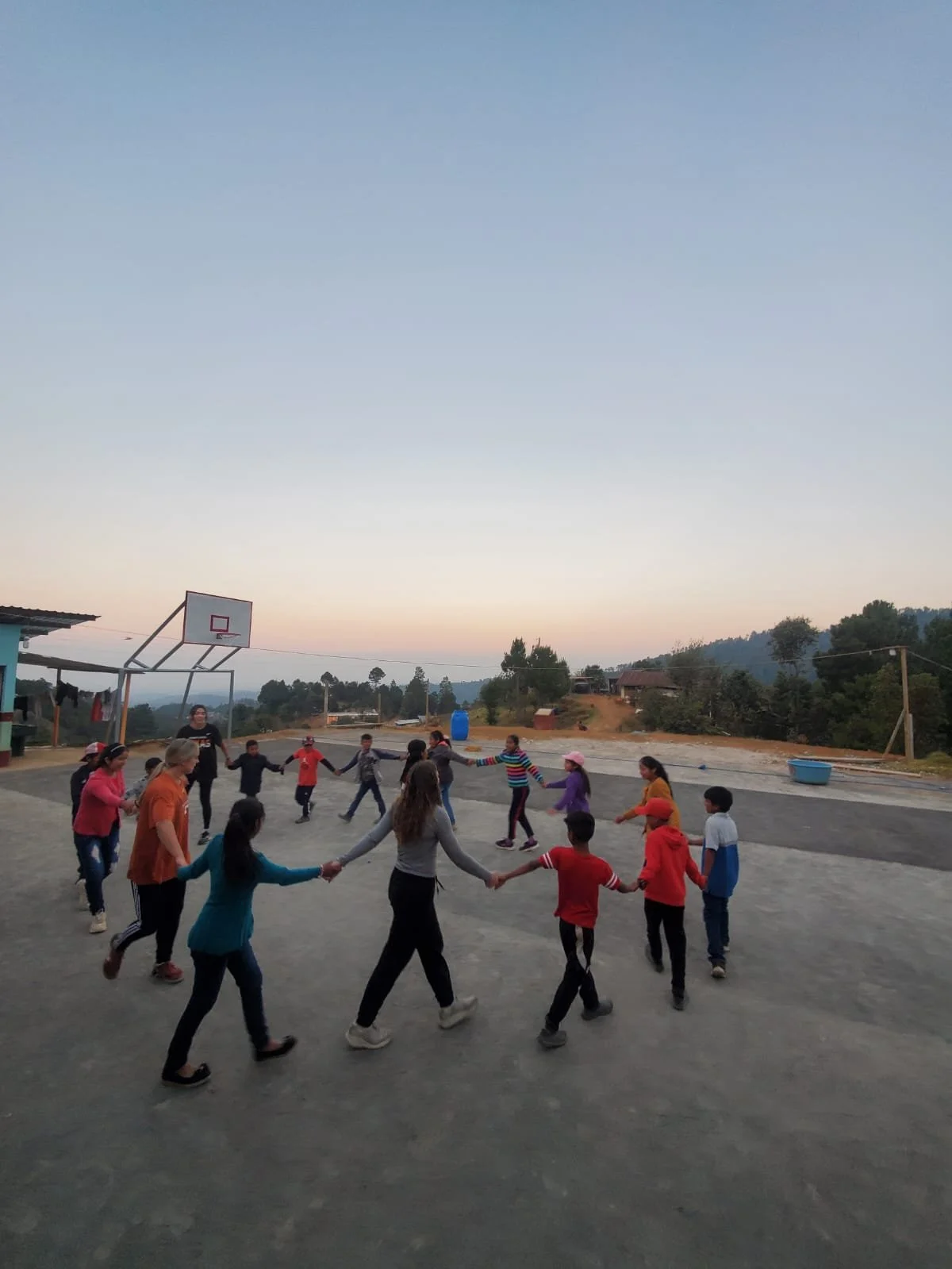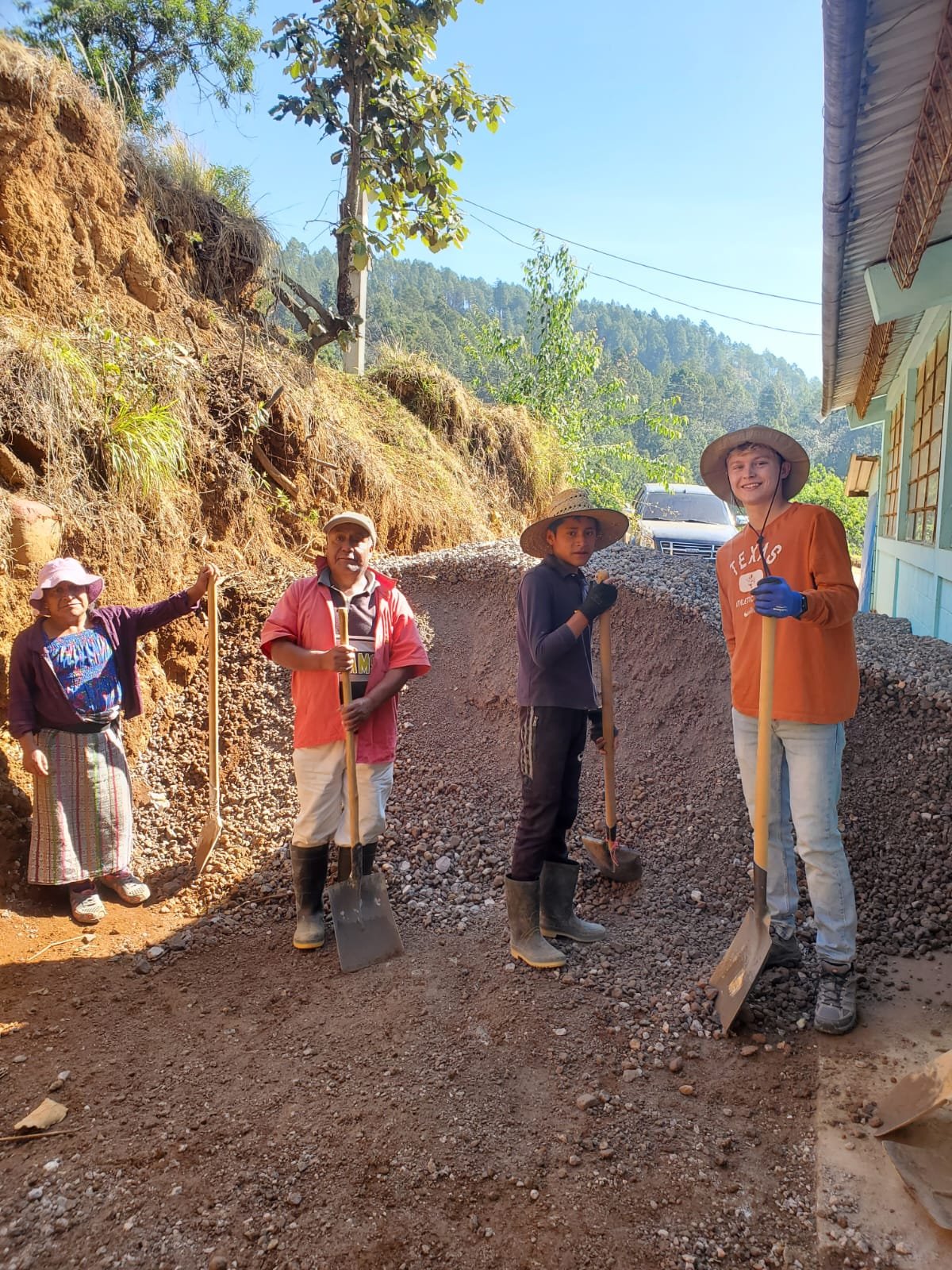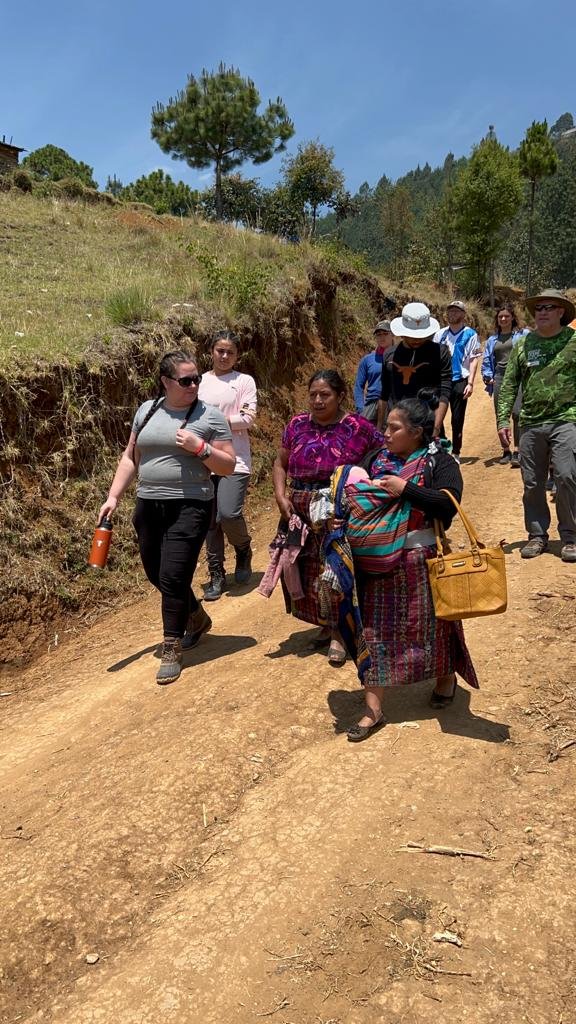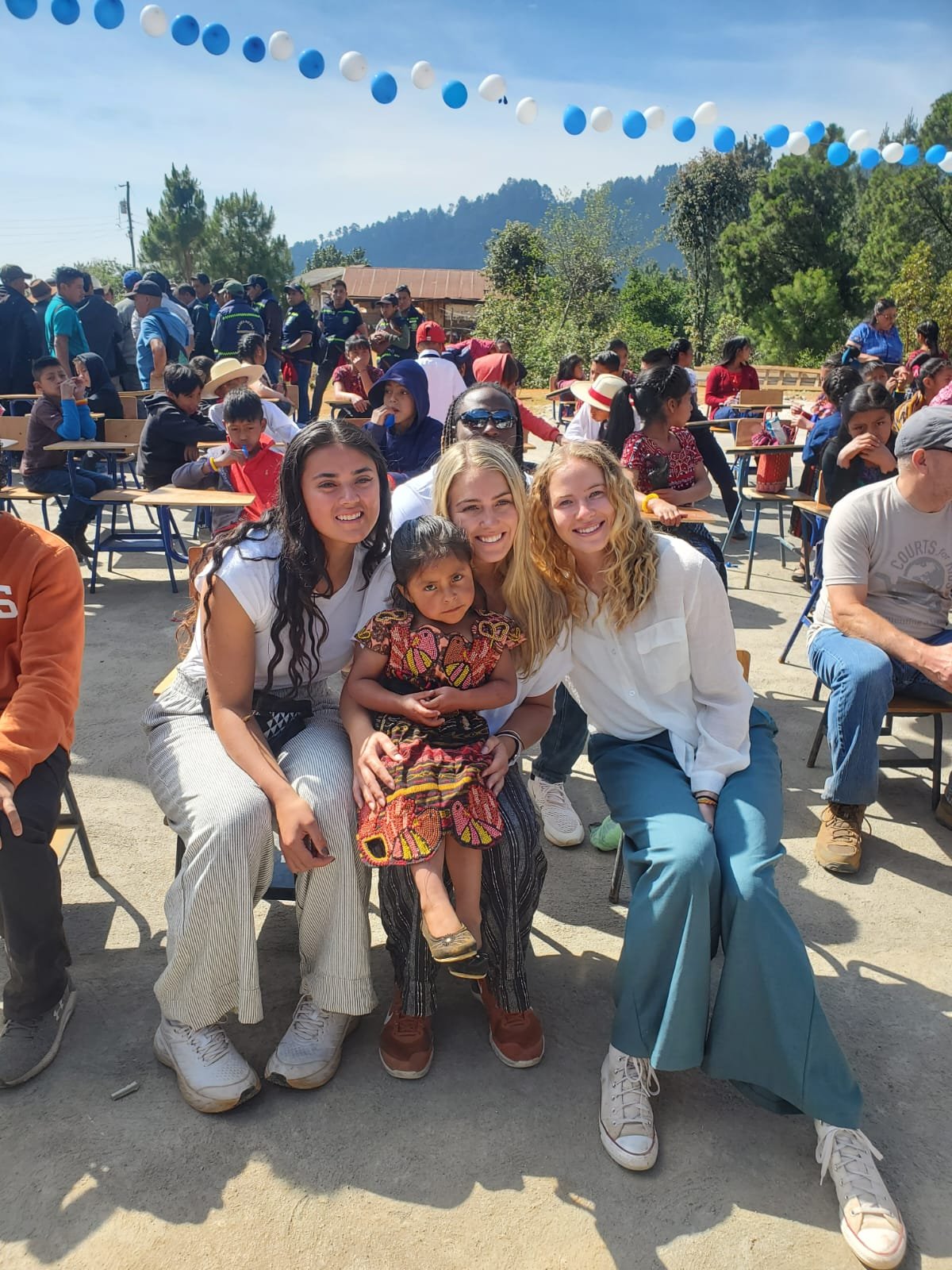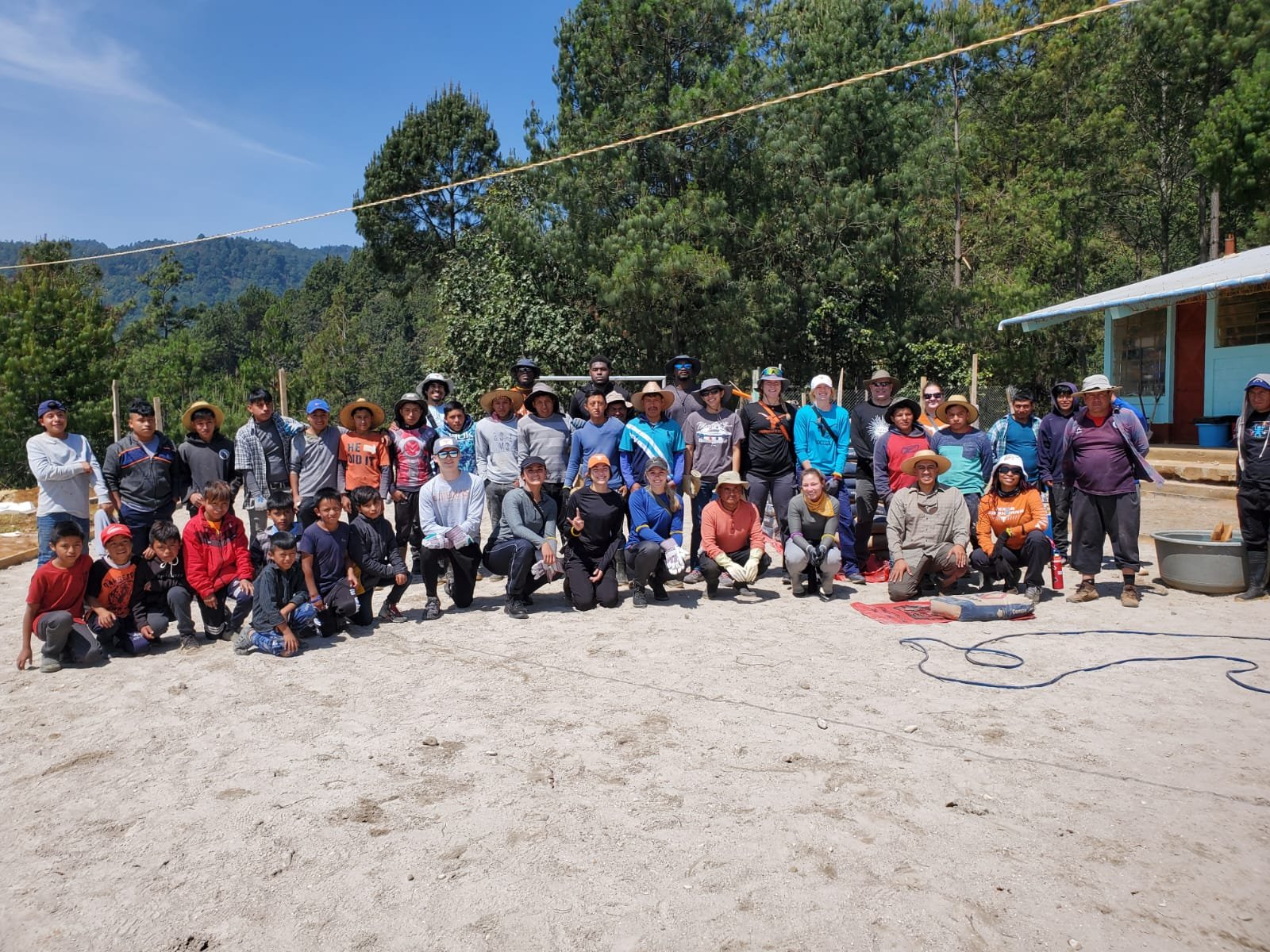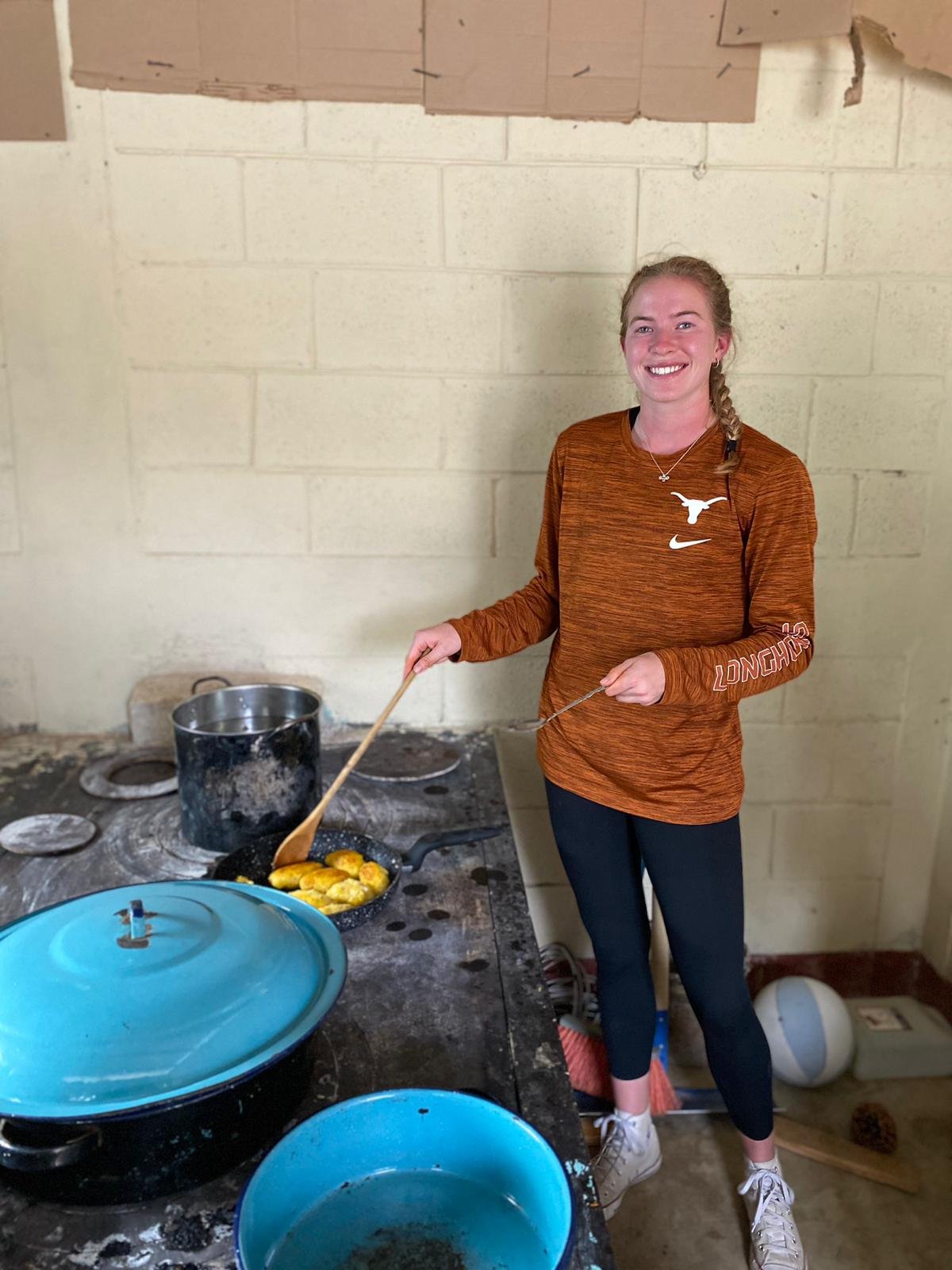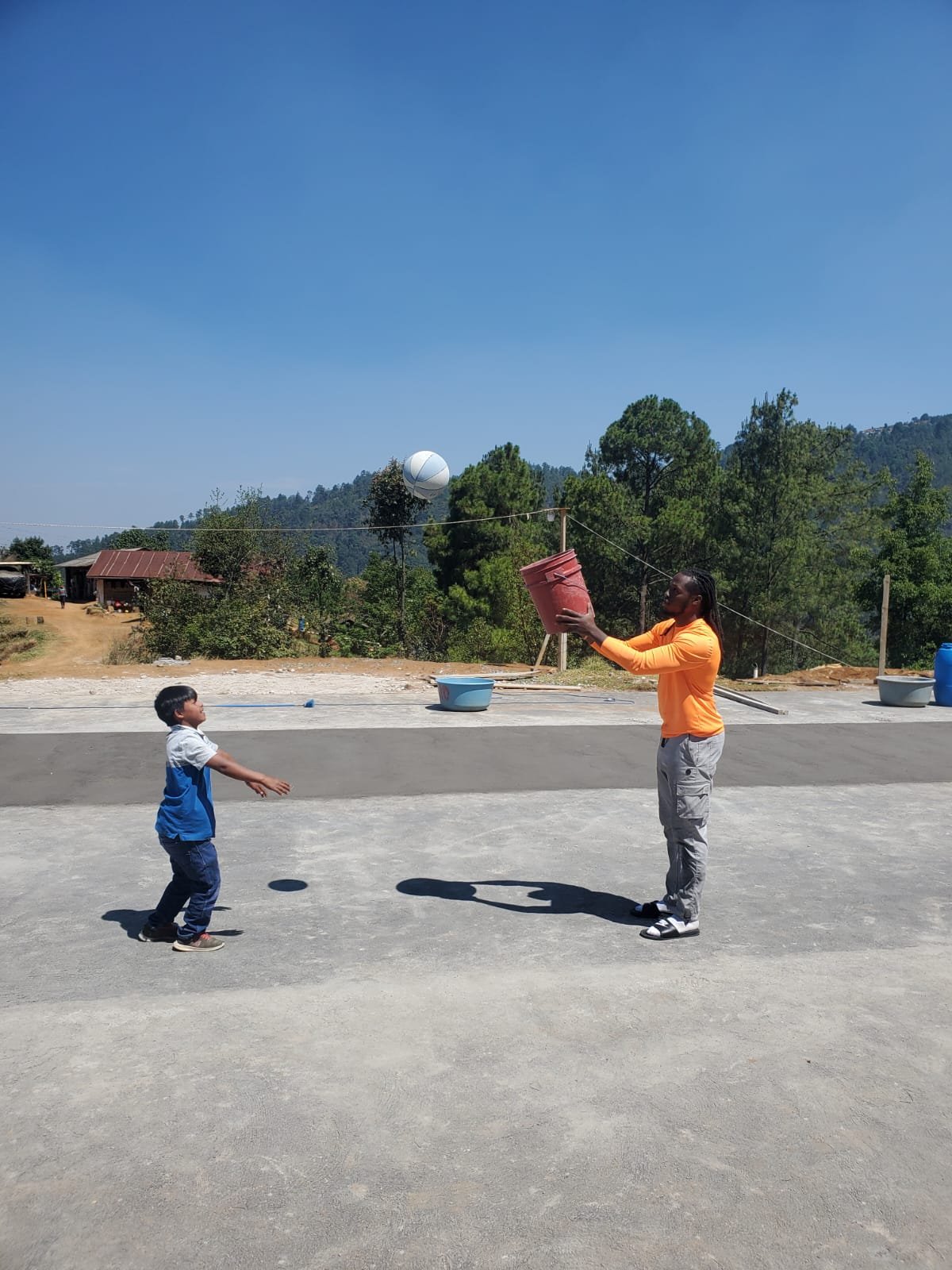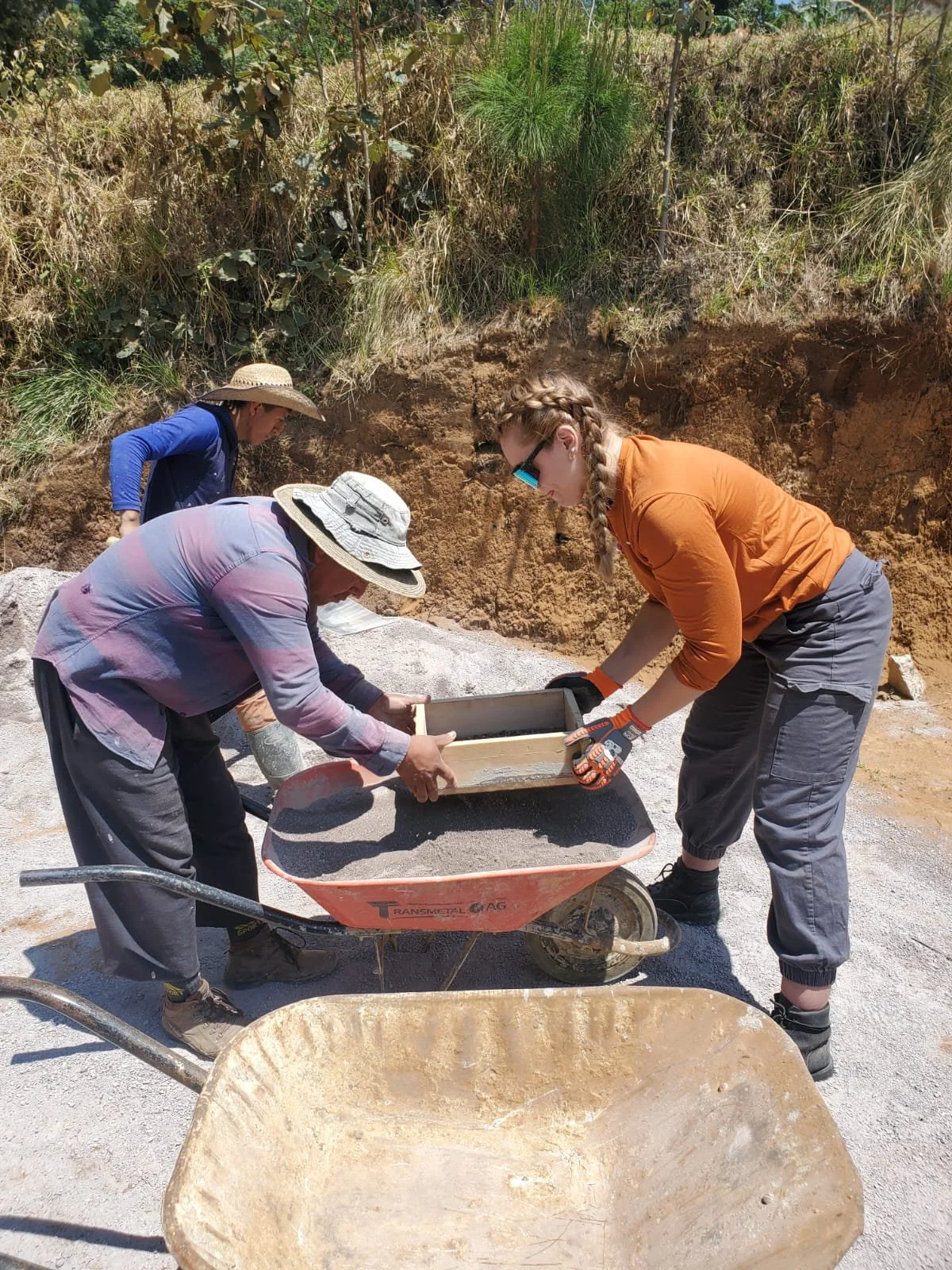UT Athletes Hooked on Chuisiguan
It is a great support from the organization and the community cannot do a project like this on its own. Thank God everything went very well; From the beginning we were given the option to do the project as we wanted and we liked that a lot because it is very rare for organizations to allow it. We always wanted a project like this and now the dream comes true.
~Reynaldo Chavez, President of the community committee
At 3:30 on a Wednesday morning, 12 University of Texas student athletes and 3 student athlete staff met at the Austin airport eager to spend the next eight days in Guatemala. We were ready to build a court for kids, but nothing could've prepared us for the connections we’d build with the community and with one another.
After two flights, we landed in Guatemala, went through customs, and finally stepped out into the city where we were welcomed by Pedro Pablo, aka Peter. Peter had a bus (and pizza) ready for us as we were about to embark on another four hours of travel. Once we made it out of city traffic, the views were breathtaking. While driving up the mountain, reaching altitudes of over 9000 feet, some of us slept, some of us talked, some of us stared out the window, but most importantly all of us were reminded by Dr. Sobers, our trip mom, to hydrate. We quickly learned, that Pedialyte would help us stay at peak performance throughout the trip. Before arriving at our destination, La Reforma Hotel, where we stayed for a night, we stopped at a popular local fast food restaurant, Pollo Campero, for our last meal of the day. While eating, we got to know Peter. Peter has dedicated his career to service in order to show his daughter that serving others is the most fulfilling thing people can do.
After a much needed goodnights sleep, we met in the hotel lobby for our first authentic Guatemalan meal. Here is where we first tried Guatemalan tortillas, which we would continue to look forward to in each one of our meals to follow. We departed from the hotel in a slightly smaller bus for an hour ride into the community where we would build the court, Chuisiguan. When we stepped out of the bus, we were immediately greeted by all of the children which instantly reassured us that it would all be worth it.
We put our stuff down in our sleeping quarters, aka the school classrooms, and got to work. This is when we really started to connect with the community. We shoveled alongside local volunteers, weaved ourselves into the assembly lines that passed the buckets from the piles of dirt to the cement machine, and those of us who rotated out to break time spent every moment laughing and smiling with the kids. By noon, we were finished working and were rushed to a cultural activity put on by the students. The next three mornings were the same. We got up early, ate a traditional breakfast (with our tortillas of course) and got to work, each day becoming more productive and learning more Spanish with the help of our translators.
After day two of work, we went zip lining in the city for 20 Quetzal, which is equivalent to just $2.50. The view made everyone want to go again, but we had to get back in time for our 2:00 PM soccer game with the locals. When we arrived at the field, just up the road from our community, the locals had their game faces on. Despite being intimidated, we put our best efforts on the field. We played for two and a half hours, taking turns subbing in and out as the altitude got to us. During our daily recap after dinner that day, Sydney Cox, a UT Soccer player, told the group afterwards “Seeing people want to play the game while just having fun really reminded me of why I love this sport.” The locals reminded us how much sports can bring people together regardless of the language we speak.
After day three of work, we went into town to have lunch and stop at our favorite tiendita to get snacks before heading to the hot springs. Most of the locals go to the hot springs to shower, but since it’s so far, they aren’t able to go often. During our two hours at the hot springs, we talked to locals and learned how people use them to bathe. Kyla, a UT swimmer, even gave some swimming lessons to the locals who were there.
Day four of work was simultaneously the most difficult and most rewarding. We didn't have the same amount of local volunteers as days prior because it was Sunday, but as Texas teammates, we knew to give our 110% and recognized where we needed to step in. We took less break time than normal and worked extra hard, finishing just as fast as the days prior. Within an hour of finishing the court, we were already playing with the kids on the dry side of the court. It was evident that the court was definitely going to get used. We took a break midday, during which some of us participated in mass at the local church. The locals expressed their gratitude to us and we were honored to be welcomed. We spent the rest of the day playing sports. As the sun set over the beautiful mountains, Keonilei and Reilley, both UT volleyball players taught the kids how to play volleyball. Despite the language barrier, they created a strong volleyball team of kids each yelling “mio” (mine) before bumping, setting, or spiking the ball. The kids even stayed out past their curfew because they were having so much fun.
Monday, day five, started with a 5:30 AM sunrise meditation on the court, brought to us by Bobby, one of our UT staff. Little did we know, that would be the most quiet and empty the court would be for the rest of the day. Just an hour after meditation came the sounds of kids bouncing balls on the court. The court was already getting so much use. We spent the whole day playing. Some of us led soccer drills. Others led basketball drills or volleyball drills. As the children played, each of us was reminded why we love sports so much. Our night ended with a feast provided by some of the women in the town. They cooked all afternoon to prepare traditional Guatemalan food: empanadas, cambrayes, caliente, rellenitos, chiles rellenos, and chuchitos. When they presented it to us, they assured us that the food was made “con mucho cariño,” with love.
We ended our time in Chuisiguan on day six with a ceremony held by the community. The court was decorated, the kids performed traditional dances, and both the Texans and the Guatemalans expressed their gratitude. When the ceremony ended, we began to say our goodbyes. Tears were shed as we each hugged those who we had connected with. We left an impact on the community, but they left an even greater impact on us. During our last reflection, we discussed the importance of recognizing the impact we are able to make on people’s lives and how we will move forward once we are back home.
Sports are a universal language. Overall, we learned that sports have the power to bring communities together no matter what our differences are. Courts for Kids gave us the opportunity to step outside our comfort zone and help those in need.
I am ever grateful and will carry this experience in my heart always. Thank you Courts for Kids.
~Mackenzie Tovar, UT Rowing, CBHP McCombs School of Business
Everything was very good and the benefit is for us, we hope that more projects like this can be done in the future. Volunteers are always welcome in our community and we are very grateful to them and to Courts For Kids. We had the opportunity to be chosen for the project, so we took advantage of it and motivated the entire community to work together for the project. ~Anastacio Chan, Community Leader
I can only feel gratitude because the project was carried out without any inconvenience. As a mother of children who study in the community school, I have seen that in previous years they always arrived muddy, but this year it will no longer be like that. I feel very grateful to everyone who made the construction of the court possible and that is all I can say.
~Lidia López García, Community member
I have worked for many years as a teacher in the Chuisiguan School and have waited a long time for this project to be carried out. I feel very grateful to the organization that took us into account and supported us for this project. Without the support received, our court would never have been built.
~Rosa Siguantay, School Teacher
Being here has made me realize that slowing down and not being on my pone to check social media has allowed me to be more happy. ~Kaylei Akana, Student Athlete
This trip has made me a lot more open minded to different cultures and ways of life. It has also made me a lot more appreciative of my relationships and of the opportunities I’ve had in my life. ~Kyla Leibol, Student Athlete
Being from El Paso, I have been very aware and very exposed to those coming to the United States from countries like Guatemala in search of a better life for their family. I never knew, though, what exactly they were leaving behind or what their conditions were like. Getting to experience that from the other side has been very eye opening to me. I hope that one day I can return with my family so that I can help this community again. ~Mackenzie Tovar, Student Athlete
My favorite memories form this trip are definitely the interactions between the kids and the athletes. The kids bring so much energy and enthusiasm and the athletes take it and give it right back. ~Kyle Anderson, Faculty Member
My experience living alongside the Chuisiguan people has opened my eyes to learning more about all of the diverse cultures the world has to offer. Overall from this trip I become a more compassionate and cultural aware person.
~Hudson Heikkinen, Student Athlete
Chuisiguan demonstrates an admirable example of what it means to be a community. The community members serve one another immensely with so much love. Overall being immersed in Chuisiguan has helped me redefine these values in ways that I will carry with me for the rest of my life. ~Reilly Heinrich, Student Athlete
The most difficult part about going home is that I have to leave all of my new friends behind. I just wish I could do something that’ll change their life. ~Juan Davis, Student Athlete
This trip provided some perspective/appreciation for the privileges that are taken for granted on a daily basis such as hot showers, western toilets that can flush toilet paper, bathing daily, access to appliances such as washing machines and indoor toilets. It’s a nice reminder of what we have in abundance in addition to what we don’t. ~Dr. Sobers, Faculty Member
